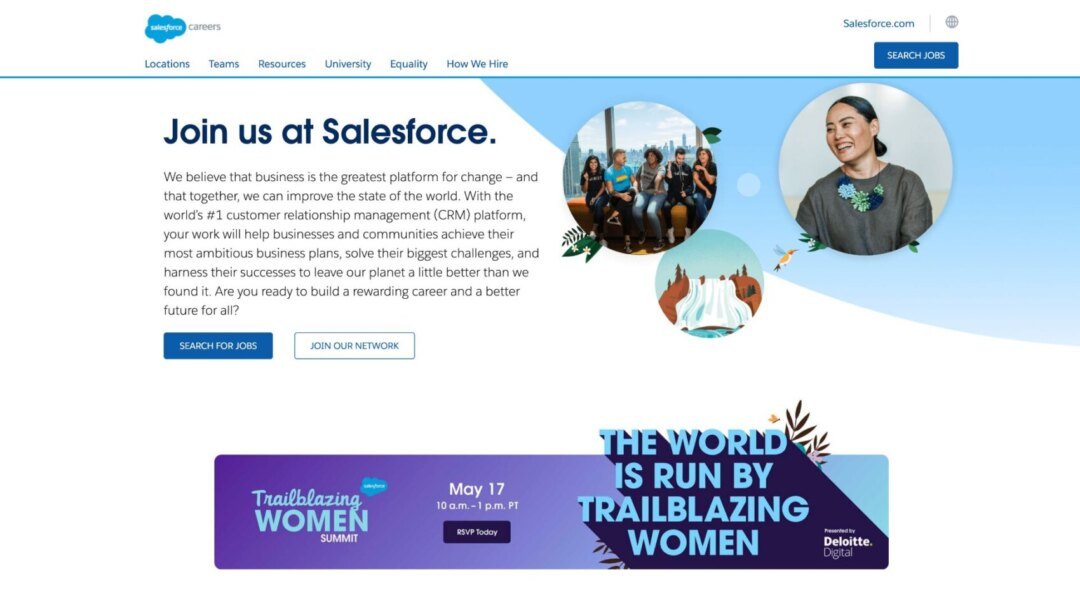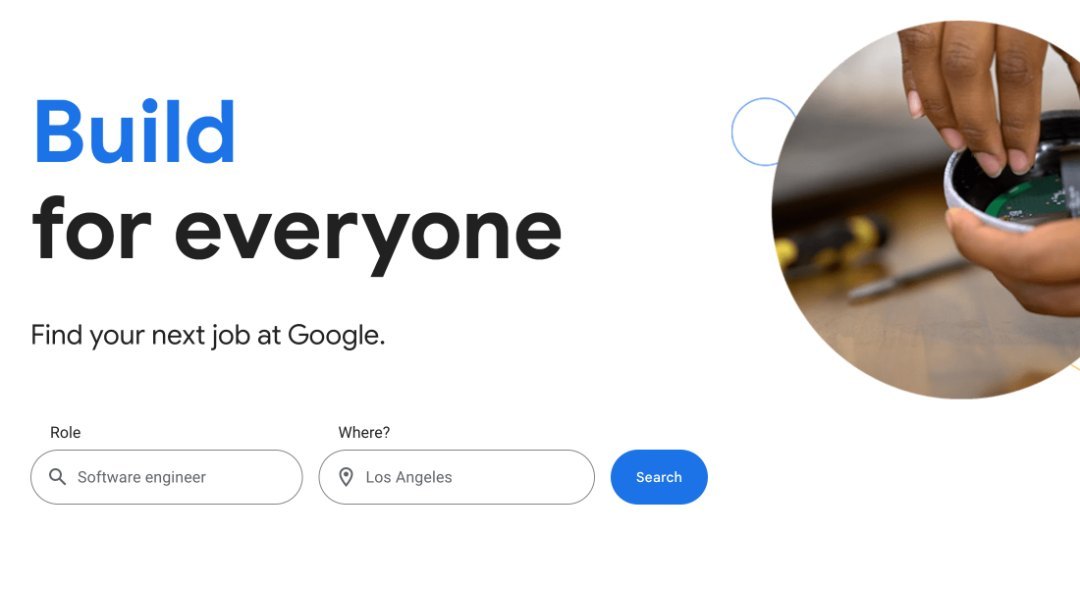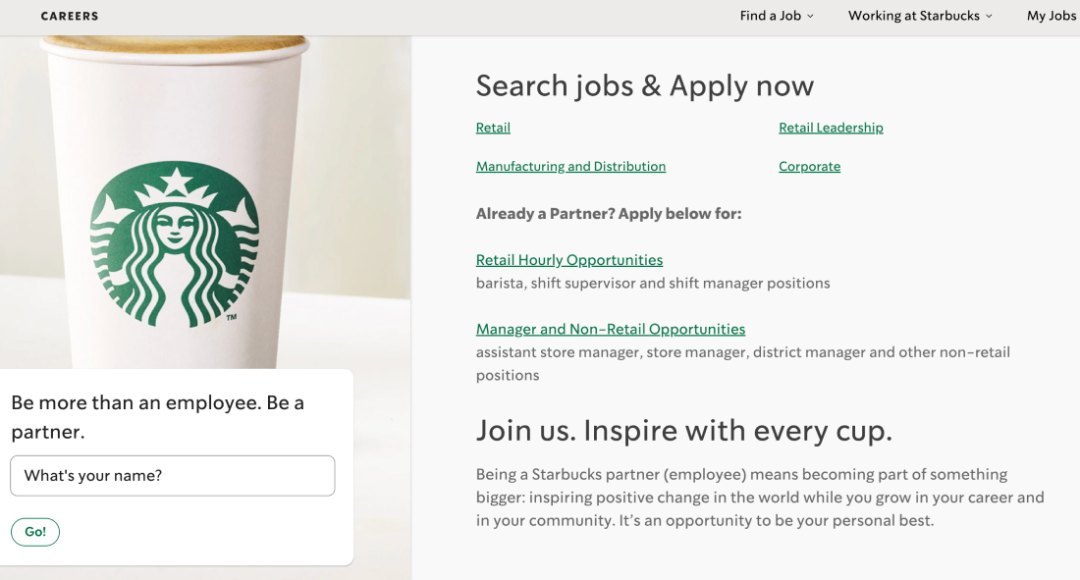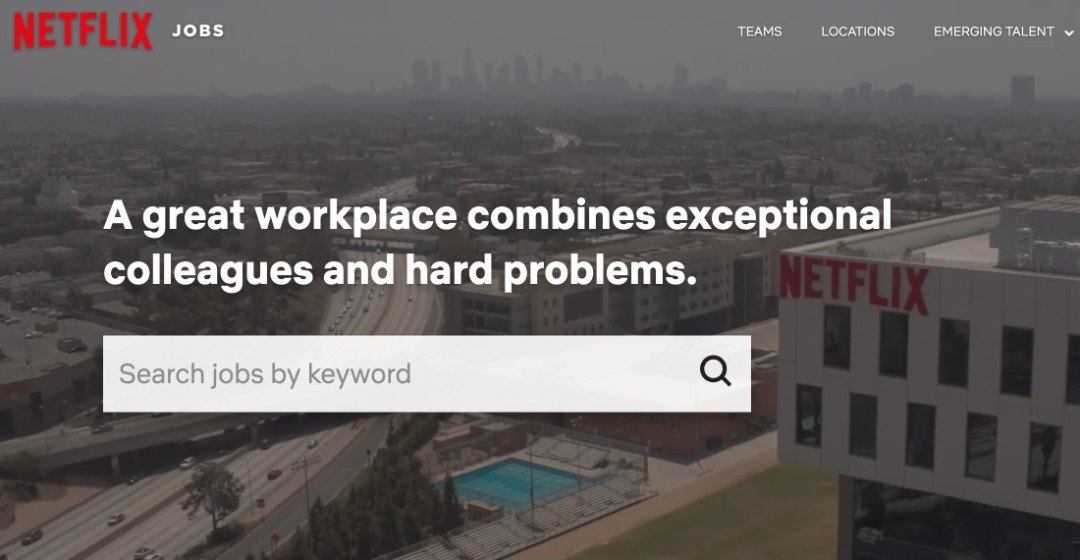Today, the job market is still very much led by candidates, with nearly two-thirds of recruiters stating they feel it’s still a candidate-driven market. Considering this, it’s no surprise that companies that recognise the power of employment branding and prioritise investing in a strong employment branding strategy are coming out on top, attaining the best and brightest talent.
Of course, there are other elements at play, but there’s no denying that employment branding is a major factor in any candidate’s decision.
Employment branding is more than just a logo or tagline, it’s what makes a workplace unique, attractive, and compelling to potential hires. Essentially, it should communicate the values, culture, and reputation of an organisation to candidates, showcasing why they should choose your company over another.
As the importance of employer branding in recruitment becomes increasingly evident, businesses are realising that standing out from the crowd requires more than just competitive salaries and benefits. We’ve recently seen a big investment in employment branding from human resource teams who are desperate to improve hiring metrics and employee retention, and it’s a trend that’s only going to get more important as the year goes on.
It’s not just about how your career page looks. It’s much more complex than that.
So, we’re here to discuss the essential elements that go into a good employment branding strategy. We’re also going to look at five employment branding examples, where companies are actively pushing the boundaries with their employment branding and are a beacon of light for passive candidates who aren’t easily pried away from their current position.
Contents
The Importance of Employment Branding
So, what is employment branding? Put simply, employment branding is a strategy that companies use to position and market themselves as attractive employers to the very best candidates, showcasing who they are, what they do, and what they can offer employees.
It encompasses a range of different elements, such as online reputation, candidate experience and journey, as well as company culture and corporate values. When you have attractive employment branding, you’re guaranteed the highest quality candidates entering the hiring process and staying in the business long term.
According to a study conducted by LinkedIn, 72% of recruiting leaders worldwide agreed that employer brand has a significant impact on hiring. Interestingly, having a strong employer brand can also have a direct impact on you or your client’s bottom line, with an average 28% reduction in employee turnover, 50% cost-per-hire reduction and businesses hiring 1-2x faster. With a great employment branding strategy, businesses can benefit from well-lined pockets in savings and reduced time to recruit.
Here are some important elements of employment branding that your customers should be looking to establish and/or improve:
Employer Value Proposition (EVP)
Crafting a compelling employer value proposition serves as the cornerstone of any successful employment branding strategy. It lays the foundation for understanding what a company can offer both new hires and existing employees, enabling businesses to create more engaging job advertisements and streamline recruitment processes effectively.
The EVP is usually a selection of a few elements:
- Compensation
- Benefits
- Career Development
- Company Culture
- Team Culture (eg. sales vs development)
- Environment
Ensuring alignment across these EVP components is crucial in the employer branding strategy, particularly in enhancing the candidate experience. Different stakeholders in the hiring process delivering different messaging can create confusion and detract from the things that brought the candidate through the door in the first place, and a good EVP helps you avoid these.
A robust and cohesive employer value proposition is essential for effective employer branding in recruitment, guiding companies through the competitive landscape of talent acquisition. If you need help establishing a strong EVP, we regularly work with recruitment organisations to deliver EVP work directly to their customers.
You can learn more about building an EVP here.
Online Reputation
Online reputation is a huge part of employer branding in recruitment. Managing an online reputation is no easy feat, especially when much of it hinges on customer reviews and case studies. However, it’s essential to consider a company’s reputation from an employee perspective as well.
Glassdoor, which has 67 million unique monthly visitors, is one of the largest tools that offers people a platform to review employers, compare salaries and apply for jobs directly. As an employer, you have the opportunity to shape your organisation’s narrative and manage how it’s perceived.
Recent statistics from Glassdoor highlight the importance of such tools and their impact on a candidate’s decision-making process. The study revealed that 75% of active job seekers are likely to apply for a job if the employer actively manages its employer brand (e.g. responds to reviews, updates their profile, shares updates on the culture and work environment).
Additionally, nearly 3 in 4 of Glassdoor users read at least 4 reviews before forming an opinion of a company, demonstrating the influence of employment branding on candidates’ perceptions.
Candidates rely on platforms like Glassdoor to gauge a company’s reputation before applying, so how you’re perceived on these networks is of great importance. Businesses must take control to ensure their Glassdoor information is up to date, actively managed, reflects their EVP and the rest of their employment branding elements.
The same principle applies to social media networks like Facebook, Twitter, and LinkedIn. As we discussed above, consistency in messaging across teams is paramount for effective employment branding and attracting top talent.
Candidate Experience and Journey
Ensuring a positive candidate experience and journey is integral to effective employer branding in recruitment. The candidate journey is every interaction, or lack thereof, that candidates have with your brand and internal or external recruiting teams throughout the hiring process. From application to offer, this journey should be meticulously mapped and constantly refined, with your business actively seeking feedback from candidates and employees.
Here are some gripes from candidates who have been through a hiring process:
Lengthy Application Process
An example of this was asking candidates to upload a CV, and then asking them to fill out a huge form that outlines the information in the CV. Why not remove the friction? A study by SHRM revealed that 60% of job seekers will quit an application midway through if the process is too lengthy or complex.
Poor Communication
Poor communication means that candidates are unsure if their application was received, what the next steps are, etc. resulting in a negative candidate experience. In fact, 80% of job seekers claim they wouldn’t reapply to a company that didn’t notify them of their application status.
Some simple automation here can be used to ensure you’re sending updates and highlighting why your business is worth this whole process. It’s a great opportunity to keep the candidates happy and show off your employment brand with content, reviews and more.
Drawn-Out Interview Processes
We’ve heard candidate stories of 8 interview stages, requiring the candidate to repeat the same information over the space of a month. If you need that many stakeholders involved, cut this down and have panel interviews. Asking a candidate to dedicate 12+ hours (including travel etc..) is exhausting and very off-putting.
Bad Job Advertisements
If your job advertisements are all about you, take a look at your job ad. Most likely it tells the candidate about your business and how great you are. But what’s in it for them? Why should they want to work for your organisation? Flip the script, stand out and attract more candidates.
Employing methods within your employment branding strategy to streamline processes, enhance communication, and prioritise the candidate’s perspective can significantly enhance the overall experience and attract top talent.
Business Culture & Values
Knowing the business culture when walking into a company is key to a candidate’s day-to-day happiness, thereby retention, making it a pivotal aspect of employer branding in recruitment. There are a ton of factors that go into building company culture.
Here are some questions candidates often ask:
- Do the company values align with mine?
- What does work/life balance look like at your company?
- What is the office vibe?
- What’s the business’s position on diversity and inclusion?
- How does the company celebrate employee success?
- Who are my team and how do they interact?
- How does the hierarchy operate?
- How driven is the organisation?
- What’s the day-to-day pace like?
Remember, culture isn’t all about going for that Friday evening knees up!
Does your leadership team have an open floor once a week that encourages employees to drive business change and direction? This is something you should be shouting about.
Is your organisation pushing for B-Corp status and doing all it can to give as much back to the community, with paid volunteering time and charity support? Again, something that you should be shouting about.
Every organisation is different, but these elements should be seamlessly integrated into your employment value proposition, demonstrating your organisation’s unique culture and values to prospective hires. While there are numerous components to crafting a compelling employer brand, addressing these cultural aspects can significantly enhance candidate attraction and retention efforts.
We can help you establish a strong employer brand and are actively looking for new organisations to work with. Please feel free to speak to us about employment branding if you’d like to reduce your time to hire and employee attrition rates.
Five Businesses with Fantastic Employment Brands
We’ve collated a couple of the best examples of employer branding so you can feel inspired and get an idea about what goes into making a stand-out employment brand.
Salesforce
Salesforce, founded by Marc Benioff in 1999, exemplifies the power of employment branding strategy in recruitment, prioritising community impact and employee well-being. Their unique onboarding process, where employees engage in volunteer service on their first day, reflects their core value of giving back. This commitment to social responsibility has earned Salesforce recognition on prestigious lists like the Fortune 100 Best Companies To Work For, ranking #2 in 2020, based on charitable work during the pandemic.
As a large organisation, they have multiple countries in which they operate and hire. They have bespoke, localised career pages for each country, providing more relevant insight into what it’s like working in each country, with country-specific social enterprise news and much more so their employer branding is accurate across the board.
The company’s emphasis on community and being a people-first organisation is evident through many of their policies. They offer workplace flexibility, including options for remote work, pet-friendly offices, and free gym memberships to name a few.
Salesforce’s employer branding is further reinforced by its consistent recognition in awards like the UK’s Best Workplaces Awards, highlighting employee satisfaction with opportunities for continuous learning, supportive management, and a culture built on trust and flexibility. Salesforce doesn’t just talk the talk, its employer brand is truly authentic, and its employees will vouch for that.
Highlights:
- Huge emphasis on community impact and social responsibility
- Unique onboarding process involving volunteer service
- Offerings of pet-friendly offices and free gym memberships
- Workplace flexibility, including remote work options
- Consistent recognition in prestigious awards for employee satisfaction and well-being
- 4.4/5 star rating on Glassdoor, with overwhelmingly positive feedback around the culture, benefits and leadership within the business

Google has invested a lot into their employer branding strategy, focusing on company culture and the impact of a positive working environment. Famous for having bright and colourful workspaces with indoor slides, this internet giant has worked hard to create a public display of its fun and vibrant culture.
Google’s commitment to a healthy workplace underpins the foundations of its employment branding, which not only attracts top talent but also fosters a psychologically safe environment where employees feel valued and empowered to make an impact.
They offer onsite wellness services such as yoga classes, they have generous parental leave policies and retirement plans, and they have countless resources and programs designed to facilitate employee development. This holistic approach to employment branding highlights the importance of delivering a consistently positive workplace experience to cultivate a strong employer brand.
Google also stands out as a prime example of how a strong employer branding strategy can mitigate negative press and maintain appeal to potential employees, regardless of external scrutiny. Despite facing criticism over various policies around privacy, advertising, and gender diversity to name a few, Google chose to make its hiring process transparent. It dedicated specific pages on its careers site to discuss technology’s societal impact and opportunities for women.
This commitment to openness has kept high-quality candidates attracted to Google, with existing employees reporting a 90% satisfaction rate, and roughly 3 million candidates sending in their CVs every year.
Highlights:
- Generous parental leave policies
- Generous retirement savings plans
- Onsite wellness services (yoga classes, massages, slides)
- 3 free gourmet meals a day
- Commitment to employee learning and growth
- Vibrant and innovative workplace culture
- Emphasis on personal fulfilment and meaningful work
- Focus on creating a psychologically safe environment

Starbucks
In the realm of employment branding, Starbucks boasts an impressive track record, earning a spot in the top 10 of Fortune’s esteemed ‘Most Admired Companies‘ list. Renowned for its commitment to diversity and inclusion, Starbucks has garnered accolades like a 100% rating on the 2022 LGBTQ+ Equality report by the Human Rights Campaign Foundation.
Their core branding strategy, emphasising diversity as a catalyst for innovation, shines through in their public stance on social and political issues. An example of this is when they announced that they would hire 10,000 refugees over 5 years in response to former President Trump’s travel ban.
Starbucks’ employer branding strategy extends beyond traditional channels, with a robust social media presence dedicated to showcasing company culture and engaging with both current and prospective employees. Through platforms like Instagram and Twitter, Starbucks fosters a sense of community and appreciation among its workforce, leveraging user-generated content to cultivate a network of brand ambassadors.
This approach not only attracts top talent but also strengthens Starbucks’ employer brand by demonstrating its commitment to employee development and inclusivity.
Highlights:
- Huge emphasis on inclusion & diversity
- Employee recognition on a large scale via a dedicated YouTube channel
- Big social media presence to showcase company culture
- Development of a team of brand ambassadors through user-generated content on social media
- Comprehensive benefits package including stock options, 401k, healthcare plans, and tuition reimbursement
- Adoption of the term “partners” for employees to foster a sense of belonging and collaboration.

Netflix
Netflix, a household name globally, excels not only in its external commercial branding but also in its employment branding strategy, setting a stellar example of the importance of employer branding in recruitment.
Their branding is not just straightforward; it’s compelling and clear. Take their careers page, for instance, where they succinctly state, “A great workplace combines exceptional colleagues and hard problems.” This concise message sets the tone for a comprehensive exploration of Netflix’s culture, history, and employee stories.
Moreover, their active presence on social media platforms like Instagram, where they showcase employee stories and internal campaigns, further reinforces their employer brand. Netflix’s innovative approach to employee benefits, including highly competitive salaries, 12 months of paid parental leave, flexible working hours, and ‘unlimited’ time off, reflects its core branding strategy of “We hire adults.”
By prioritising trust and empowerment, Netflix sets a powerful example of how employment branding can attract and retain top talent.
Highlights:
- Highly competitive salaries
- 12 months of paid parental leave
- Open working hours
- No strict holiday guidelines
- Core branding strategy of “We hire adults” emphasises trust and empowerment

Innocent Drinks
Innocent Drinks epitomises the power of employer branding strategy in recruitment, seamlessly weaving its core values of wit, humour, and social responsibility into its brand identity. Showcased well through social media, they have a big following on Instagram and LinkedIn where they regularly post fun, engaging content which communicates their values and workplace environment.
Their innovative “Life After Innocent” initiative is a prime example of how they go the extra mile to build their employer brand. They have an alumni page celebrating the achievements of former employees, which uncovers what they learnt at Innocent and how they used the skills to thrive in their careers afterwards.
Candidates are very receptive to a story and Innocent does a great job of building narratives about employee wellbeing into their employer branding. This transparent approach extends to their recruitment process, with helpful FAQs and top tips for applicants, reinforcing their commitment to openness and inclusivity.
A core value of Innocent’s employer brand is recognising its role in social responsibility, both internally and externally. A great example of Innocent’s dedication to giving back is evident in initiatives like donating 10% of its profits to the ‘Innocent Foundation’, which fights world hunger. Additionally, schemes like ‘The People Clinic’ – a weekly drop-in centre where employees can get practical, confidential help for any issues in their work or personal lives – further exemplify their dedication to employee well-being and support.
All these efforts ladder up to Innocent’s overarching mission: to build a successful business that prioritises social impact over profit.
Highlights:
- Transparent and inclusive recruitment process
- Celebrates achievements of former employees through “Life After Innocent”
- Demonstrates commitment to social responsibility through initiatives like the Innocent Foundation
- Employee well-being supported through initiatives like “The People Clinic”
- Big social media presence to showcase company culture

Conclusion
We hope you can take some of the elements above and apply them to your brand. Or if you’re a recruitment business, perhaps you can help your customers apply it to their brand and hiring process.
We are now offering employment branding services for organisations looking to reduce their attrition and attract better-quality talent. We have developed a winning strategy to create and develop a successful employment brand and we’d love to hear from you.
If you are a recruitment business working with clients that need an employment branding overhaul, then we can offer a white-label solution, fully managed and delivered to your customers – simply get in touch and we’d be happy to chat this through.
You can contact the team here.







